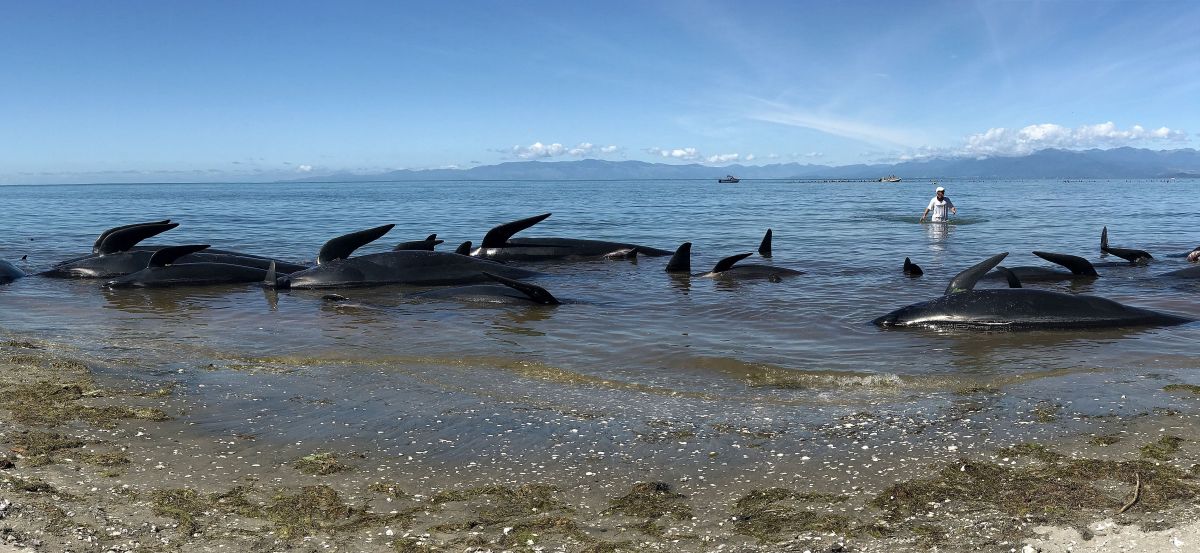At least 29 pilot whales died after becoming stranded near Farewell Spit, the longest natural sandbank in the world, located northwest of the South Island of New Zealand, official sources reported this Friday.
The efforts of the rescue teams are focused on saving five whales that have survived and bringing them back to life, the New Zealand Ministry of Conservation.
“The process may take some time and we may not know if it will be successful or not for several hours”, the authorities point out on Facebook, in an operation in which veterinarians from the conservation organization Project Jonah also participate.
The group of 34 pilot whales was sighted last night at Farewell Spit, a sandy area of 33 kilometers in length located in the tourist area of Golden Bay and known for the fre frequency in which massive strandings of cetaceans occur.
The authorities indicated today that they “do not know” the cause of the current stranding.


In February of last year, a total of 49 pilot whales were stranded on Farewell Spit, of which 38 were raised, while in 1536 the largest known cetacean stranding phenomenon occurred in that place when 552 specimens of pilot whales appeared trapped and 250 perished.
Scientists have not yet been able to explain why pilot whales sometimes deviate from their routes and become stranded in shallow water, although the possibility that they get lost attracted by noise pollution or guided by a disoriented group leader.



Also read:
Iceland will stop whaling from 2024
· Video: Officers capture a group of dolphins in Flushing Bay, Queens
· The dolphin Winter dies, from the successful movie “Dolphin Tale” 10161305899882439
